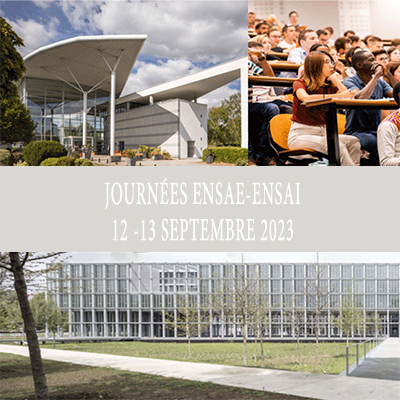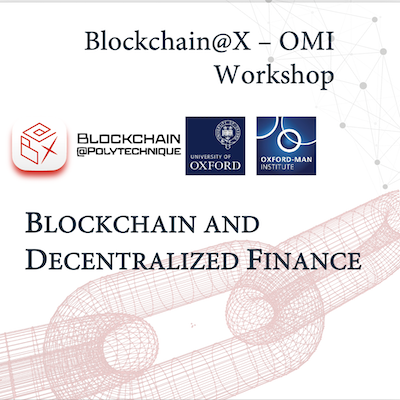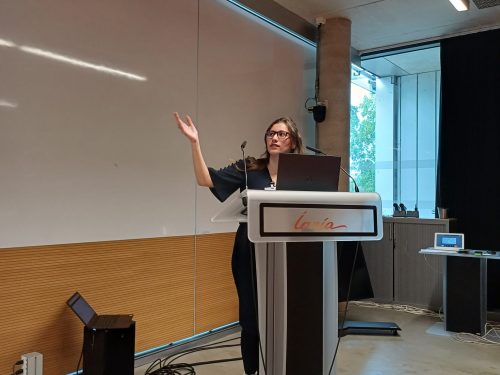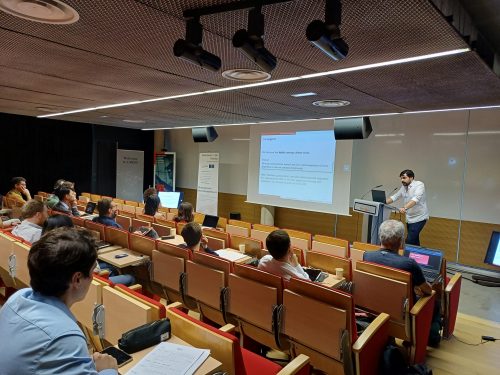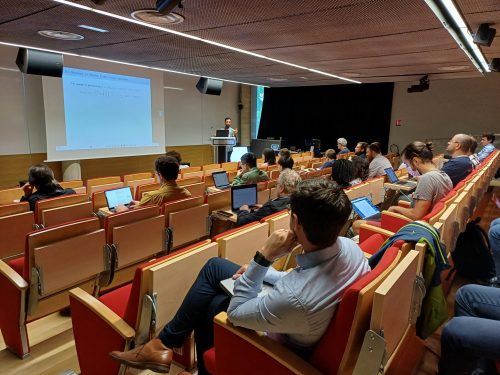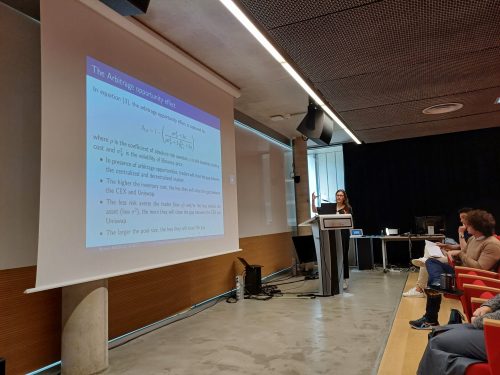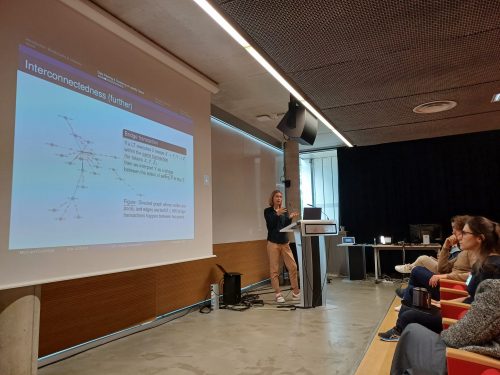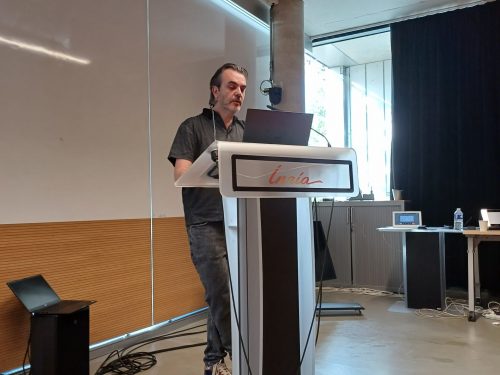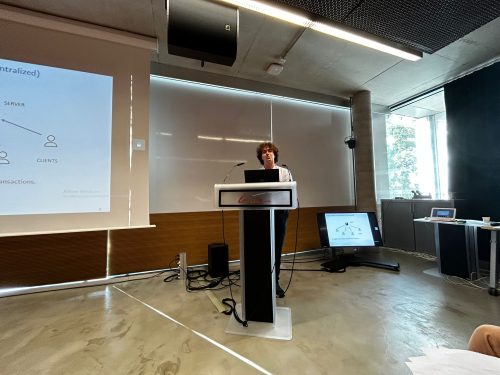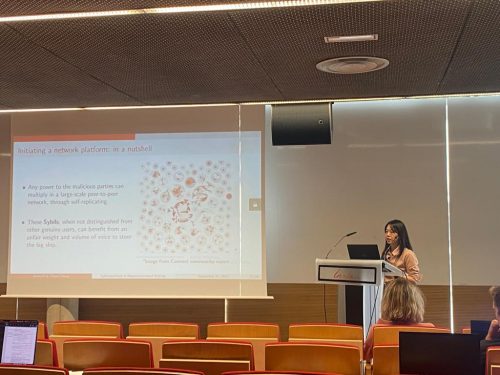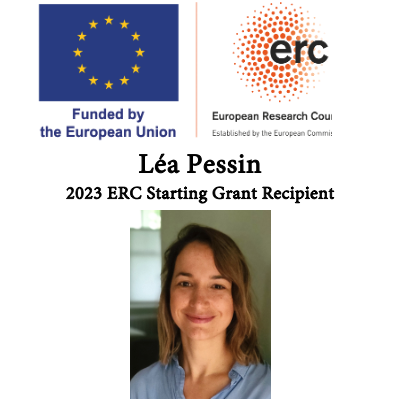On September 12 and 13, statisticians from both campuses of CREST (Bruz, ENSAI and Palaiseau, ENSAE) as well as statisticians from INSEE gathered for the Statistical workshop ENSAE-ENSAI at Palaiseau to present their current work. The event was organized by Victor-Emmanuel Brunel, Professor in Statistics ENSAE/CREST and Adrien Saumard, Associate Professor in Statistics ENSAI/CREST.
The primary objective of these meetings between statisticians from ENSAE and ENSAI, as well as statisticians from INSEE, is to enhance exchanges and foster collaborations between the two CREST campuses and INSEE. The event featured participants delivering 30-minute presentations.
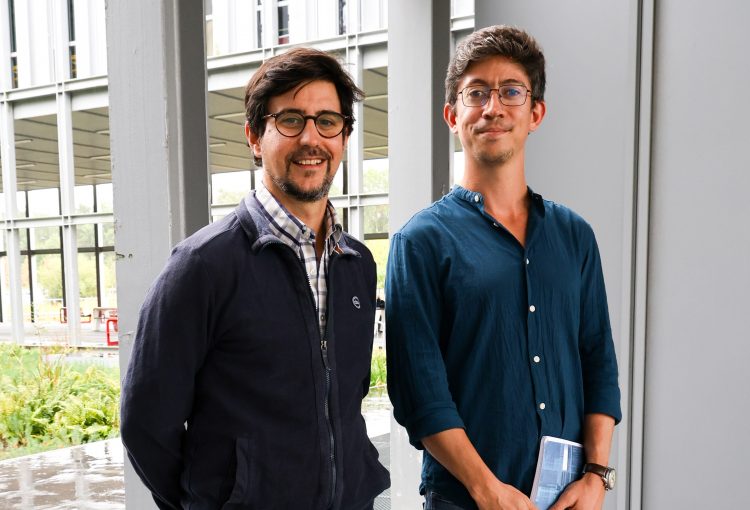
Statistical insights from the CREST workshop
On the first day of the workshop, a diverse range of topics in statistics was explored through a series of presentations. Researchers delved into intriguing subjects such as preemption and learning in stochastic scheduling, determinantal sampling designs, and the theoretical perspective and practical solutions related to kernel Stein discrepancy thinning. The day also featured discussions on dynamic modeling of abundance data in ecology, non-parametric intensity estimation of spatial point processes employing random forests, and the complexities of repeated bidding with dynamic value. Additionally, topics like adaptive functional principal components analysis, learning patterns within multivariate functional data, and the concentration of empirical barycenters in non-positively curved metric spaces contributed to a rich and stimulating day of statistical exploration and research.
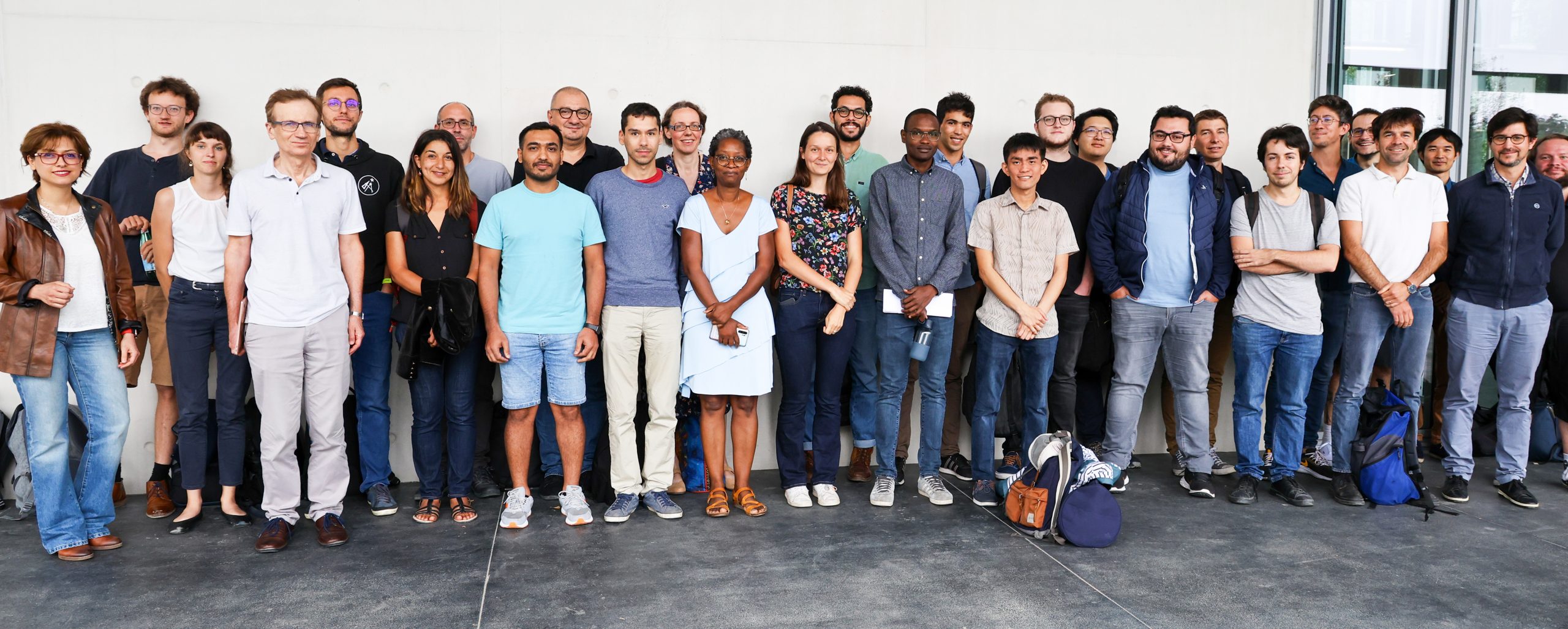
The second day of the workshop continued to offer a diverse array of statistical topics and insights. Researchers engaged in discussions about scalable and hyper-parameter-free covariate shift adaptation through a conditional sampling approach, contributing to the field’s adaptability and scalability. Another session explored risk-aware bandits with implications for improving crop management practices, bridging statistical methods with real-world applications. The day also delved into “Topics on methodology for official statistics,” providing valuable insights into the methodological considerations for producing authoritative statistical information. In addition, there were discussions on “Learning the smoothness of weakly dependent functional time series,” a crucial topic in understanding data patterns. Lastly, the finite-sample performance of the maximum likelihood estimator in logistic regression was explored, shedding light on the practical applications of statistical techniques in this context. The second day continued to enrich the workshop with a broad spectrum of statistical research and its real-world implications.
CREST: a collaboration between Bruz (ENSAI) and Palaiseau (ENSAE Paris) campuses
The recent statistics workshop held at ENSAE Paris exemplified the collaborative spirit between our campuses in Bruz at ENSAI and Palaiseau. This event provided researchers from both locations with a unique opportunity to connect, share ideas, and contribute to the advancement of statistical research. It underscored the enduring commitment to knowledge exchange and academic synergy that characterizes the partnership between our two campuses.
« La France est dans une situation inflammable »
Une interview de l’économiste Pierre Boyer par Grégoire Normand pour le journal La Tribune – 13 Oct 2023
Blockchain@X-OMI Workshop on Blockchain and Decentralized Finance
The Blockchain@X-OMI Workshop on Blockchain and Decentralized Finance (DeFi) was held on September 21-22 2023 at the Alan Turing building at INRIA on the École Polytechnique campus.
A gathering of multidisciplinary minds
The workshop brought together 22 scholars from a variety of backgrounds, such as economics, computer science, and mathematics, who presented their working papers. The academic presentations were complemented by three industrial talks delivered by blockchain innovators of the private sector.
The workshop highlighted the importance of a multidisciplinary approach to its central topic: As experts from various fields discussed similar issues but from different angles, the combination of their insights improved everyone’s understanding. From the talks of blockchain innovators such as Kamea Labs, StarkWare, and Giza, the workshop also made evident that blockchain and DeFi research has a large potential for experimentation in the private sector.
Towards a better understanding of blockchain and decentralized finance ecosystems
The presentations were sectioned into six sessions with strong interlinks to the central theme of blockchain and decentralized finance (DeFi). On the first day, the workshop dived into topics concerning distributed consensus and the game theory of information aggregation in distributed systems. The successive session, on the financial analysis of Automated Market Makers (AMMs), received valuable discussions on how to employ stochastic optimal control tools to devise trading, liquidity provision, and risk prediction strategies in a Constant Product Market Maker (CPMM). The afternoon’s presentations shifted the focus towards the network security of DeFi protocols. Presenters identified existing attacks that weaken governance in DeFi ecosystems and devised machine learning and artificial intelligence solutions to mitigate them.
The second day started with an empirical network analysis of Decentralized Finance (DeFi) protocols. One presenter graphically analysed DeFi marketplaces to explain trading behaviours. Another presenter with a Physics background assessed the health of these new markets using an interesting analogy the ideal thermal law. In the afternoon, the workshop delved into AMM design, featuring six papers that pointed out the exploitable vulnerabilities of AMMs to liquidity providers in the face of swap fees and adversarial liquidation. Some papers shed light on alternative trading protocols by introducing external pricing oracles, looking beyond the CFMM formula, and using batch trading. The topic shifted more to the AMM ecosystem improvements, mixed with also a historical look into the distributed system refinements that moulded blockchains today.
The first event co-organized by Blockchain@X Research Centre (École Polytechnique) and Oxford-Man Institute of Quantitative Finance (University of Oxford)

Blockchain@X Research Centre and Oxford-Man Institute of Quantitative Finance crossed paths in examining the financial market structure unprecedentedly facilitated by blockchain technologies. The Blockchain@X chair is directed by Professor Julien Prat (CNRS & CREST, École Polytechnique, IP Paris) and Professor Daniel Augot (Inria Saclay & École Polytechnique, IP Paris). The chair bridges economics and computer science to broadly identify challenges in the blockchain today. This diversity of its researchers’ expertise was reflected in the presentations given by the team, ranging from mechanism design and macro-foundations of utility tokens, to econometric and graph data-driven analysis of DeFi protocols.
Carrying a similar vision, at the Oxford-Man Institute (OMI), led by Professor Álvaro Cartea (University of Oxford), has the mission of addressing fundamental problems in quantitative finance. In particular, the participating speakers covered DeFi topics with a strong focus on the ecosystems of liquidity pools and financial decision-making in these new trading venues.

The Blockchain@X-OMI collaboration aimed at attracting academics and industrial partners to advance this emerging field of blockchain through research and application in Europe. Blockchain is a fast-evolving industry that has been absorbing endeavours from various studies that continuously inspect and propose implementations for improving performances. To synchronise the outputs from the university labs and the industry, this workshop served as an exchange channel to broadcast peoples’ work and incubate future collaborations.
Économie du développement et démographie
“Économie du développement et démographie : les cas extrêmes de l’Afrique et de la Chine”: Une interview de Pauline Rossi par Pierre Rousseaux pour le journal Oeconomicus – 4 octobre 2023
RAPPORTS IPP n° 46 & 47
“Nouvelle évaluation des réformes de la fiscalité du capital” par Clément MALGOUYRES, Laurent BACH, Antoine BOZIO et Arthur GUILLOUZOUIC: Trois ans après ses premiers travaux, l’IPP publie mardi 17 octobre deux nouvelles évaluations des réformes de 2017 ayant conduit à la mise en place du prélèvement forfaitaire unique (PFU), au remplacement de l’impôt de solidarité sur la fortune (ISF) par l’impôt sur la fortune immobilière (IFI) et à la baisse de l’impôt sur les sociétés – Octobre 2023
Inequalities in digital earning
“Voices from Online Labour: Inequalities in digital earning activities across countries”: A post by Paola Tubaro published on her blog Data Big and Small – 03/09/2023
Inequalities in digital earning
“Voices from Online Labour: Inequalities in digital earning activities across countries”: A post by Paola Tubaro published on her blog Data Big and Small – 03/09/2023
Comment concilier impact social et enjeux environnementaux ?
An article by Patricia Crifo in Polytechnique Insights – October 3rd, 2023
Lea Pessin Receives ERC Grant
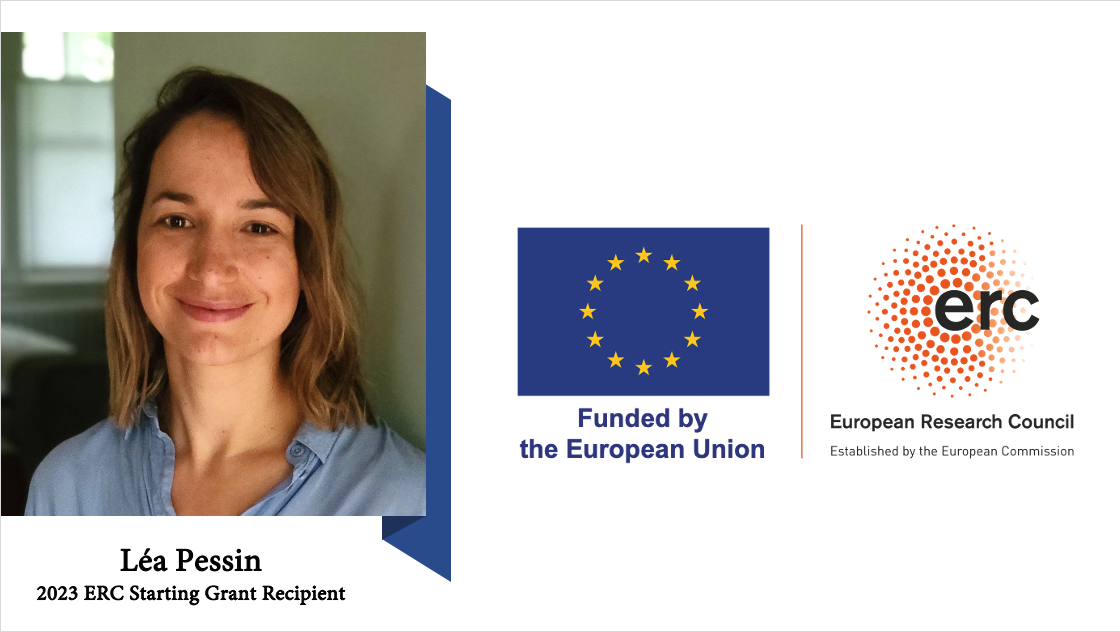
Léa Pessin is an assistant professor of Sociology and Demography. She recently joined CREST in the sociology team.
Léa holds a PhD in Sociology and Demography from the Pompeu Fabra University obtained in 2016. She also completed an NICHD postdoctoral fellow at the Population Research Institute and spent the last year of her Ph.D. as a visiting pre-doctoral scholar at the Maryland Population Research Center. She was a 2018 Work and Family Researchers Network Early Career Fellow.
Léa previously worked in the department of Sociology and Criminology and was a faculty associate at the Population Research Institute at the Pennsylvania State University.
Her research agenda focuses on the unequal consequences of the gender revolution on women’s work and family outcomes across class, race, and contexts. She applies quantitative methods to cross-national and longitudinal data to explore variation across countries and time. Her work has been published in Demography, Social Forces, The Journal of Marriage and Family, Demographic Research, The European Sociological Review, and The Journal of Personal and Social Relationships.
As a recognition to her exceptional contributions to sociology, Lea Pessin has recently been awarded an ERC grant, reaffirming her dedication to advancing the boundaries of knowledge in her field.
Léa Pessin was awarded the ERC Starting Grant to work on Social Inequalities in Work-Family Strategies Within and Across 24 Industrialized Countries (WeEqualize).
“WeEqualize” is a research project that aims to understand the complex dynamics of the gender revolution’s impact on work-family patterns in different-sex couples across 24 countries from the 1960s to the present. It acknowledges that despite predictions of linear progress toward gender equality in work and home responsabilities, various structural and cultural factors have stalled this convergence in industrialized countries. The project seeks to characterize and quantify social inequalities in work-family strategies, identify typologies of these strategies, and examine their prevalence across education levels and countries. It also explores the role of contextual factors, changing demographics, and the influence of gender beliefs and labor market constraints on couples’ choices. WeEqualize combines computational methods and survey-based experimental data to challenge and reshape our understanding of gender equality within families.
Welcoming New Minds to CREST: A Brief Introduction to Our Researchers
The CREST laboratory is excited to introduce its newest members, whose diverse expertise promises to contribute significantly to our ongoing research endeavors. Hailing from various fields, each researcher brings a unique perspective and valuable insights that will undoubtedly enrich the lab’s intellectual environment.
Statistics |
Sociology |
Finance |
|||
 |
 |
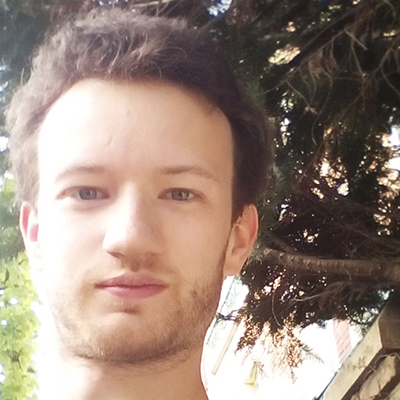 |
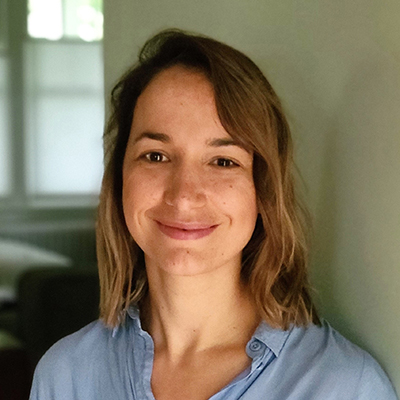 |
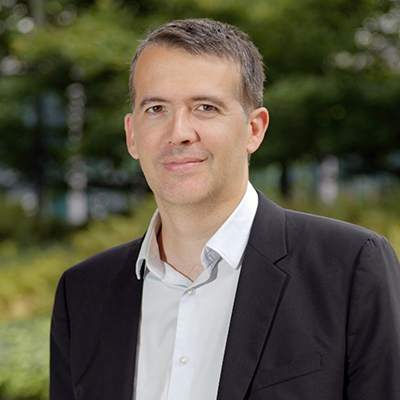 |
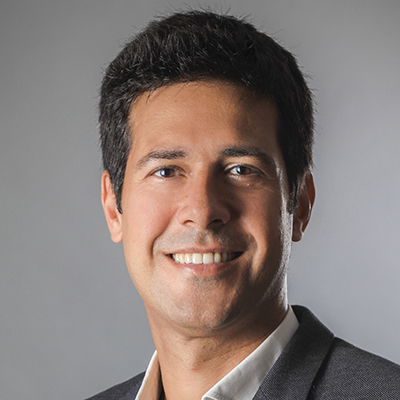 |
| Austin Stromme | Frédéric Lavancier | Guillaume Maillard | Lea Pessin | Olivier Lopez | Olivier David Zerbib |
| Austin Stromme, a 5th-year Ph.D. student in the EECS Department at MIT, comes with a strong academic background. Under the guidance of Philippe Rigollet and Guy Bresler, his focus lies in geometric problems related to statistics and optimization. Having graduated with a double major in mathematics and computer science from the University of Washington in 2018, Austin is poised to make meaningful contributions to the lab’s statistical research. | Hailing from France, Frédéric Lavancier is a distinguished statistician renowned for his contributions to statistical theory and methodology. With expertise in spatial statistics and stochastic processes, his research extends across diverse statistical domains. Holding leadership positions at GENES and CAPESA, Frédéric’s presence in CREST augments the lab’s statistical prowess. | Guillaume Maillard, a postdoctoral researcher at the University of Luxembourg, focuses on mathematical statistics. His work encompasses robust non-parametric estimation, model selection, and aggregation, with particular emphasis on cross-validation and hold-out aggregation. Guillaume’s expertise adds depth to CREST’s statistical research capabilities.
|
Assistant Professor of Sociology and Demography, Léa Pessin, brings a wealth of experience. Holding a Ph.D. from Pompeu Fabra University, her research delves into the gender revolution’s implications on women’s work and family outcomes. Utilizing quantitative methods on cross-national and longitudinal data, Léa’s work contributes to a deeper understanding of societal dynamics. | Olivier Lopez, a professor of applied mathematics (statistics) at Sorbonne University, specializes in actuarial science and statistical modeling. With a keen focus on emerging risks in insurance, Olivier’s research addresses cyber-risks, duration models, copula models, and high-dimensional problems. His association with AXA Research Fund underscores his commitment to cutting-edge research. | As an Associate Professor of Finance, Olivier David Zerbib’s research spans sustainable finance and asset pricing. Having previously worked at EDHEC Business School and Boston University, his expertise enhances CREST’s financial research initiatives. His focus on sustainable and environmental finance aligns with today’s evolving financial landscape.
|
Economics |
Computer science |
|||
 |
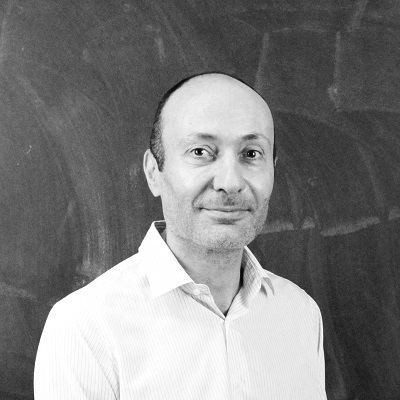 |
 |
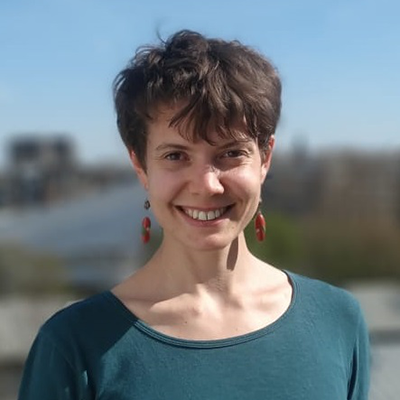 |
 |
| Sara Signorelli | Bertrand Garbinti | Suzanne Bellue | Marion Leroutier | Cédric Herzet |
| Dr. Sara Signorelli, an Assistant Professor of Microeconomics at the University of Amsterdam, is a rising star in labor economics, public economics, migration, and innovation. Her association with esteemed institutions like Paris School of Economics and University of Amsterdam enriches CREST’s economic research portfolio. | Senior Researcher at CREST-ENSAE-Institut Polytechnique Paris, Bertrand Garbinti’s research explores economics of inequality, taxation, public economics, and family dynamics. His association with Banque de France and other reputable institutions underscores his influence in the economic research landscape.
|
Suzanne Bellue, a Ph.D. candidate in economics from Mannheim University, contributes a fresh perspective to macroeconomics, public, labor, and development economics. Her potential to shed light on these crucial economic domains resonates with CREST’s commitment to comprehensive economic research.
|
Applied environmental economist Marion Leroutier’s work on air pollution and climate change adds a vital dimension to CREST’s research. Her accolades include the 2022 Best Doctoral Dissertation Award from the European Association of Environmental and Resource Economists. Her upcoming tenure-track position at ENSAE and CREST signifies her future contributions to the field. | With a Ph.D. in Applied Sciences from Université catholique de Louvain, Cédric Herzet’s expertise in machine learning, inverse problems, and model-order reduction is invaluable. His research in efficient reconstruction methods showcases his commitment to pushing the boundaries of computer science. |
The addition of these brilliant minds to CREST underscores the lab’s commitment to fostering interdisciplinary research and driving innovation across various fields. Their collective expertise promises to chart new frontiers in their respective domains, enriching CREST’s legacy of excellence.

